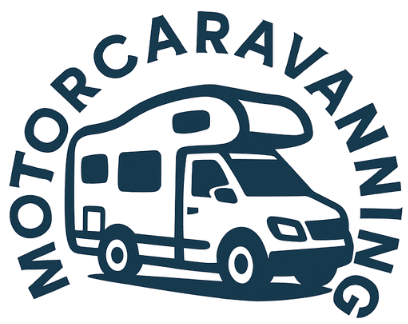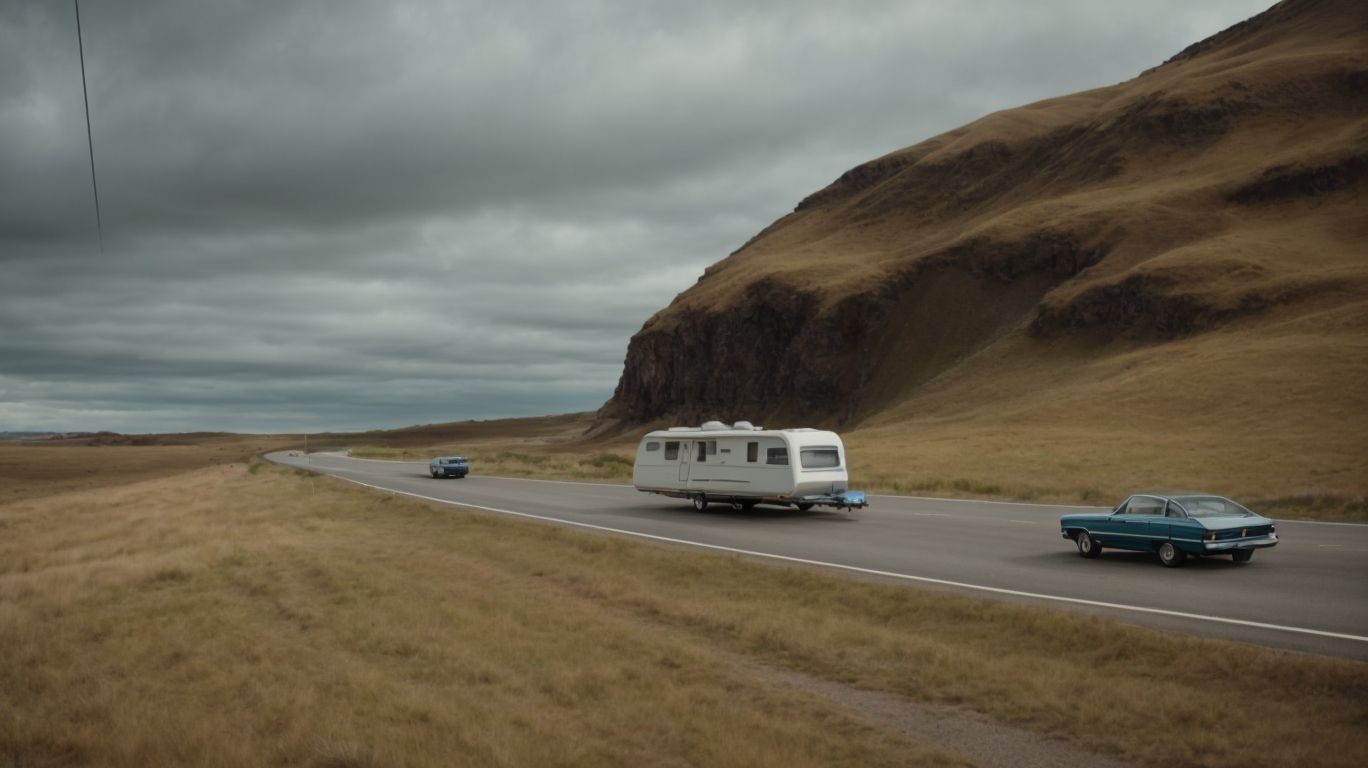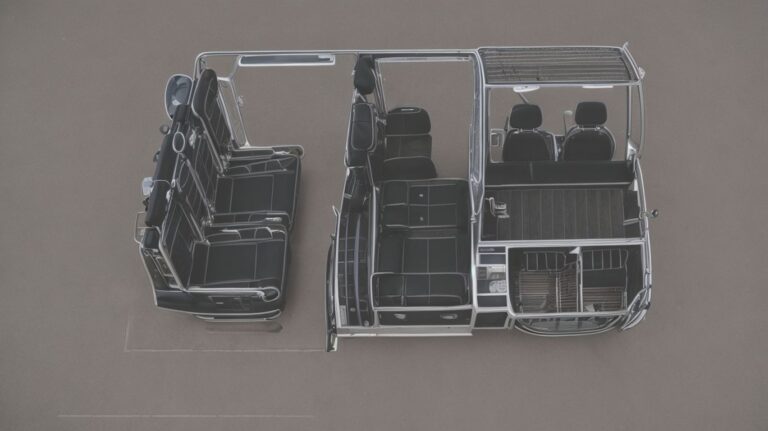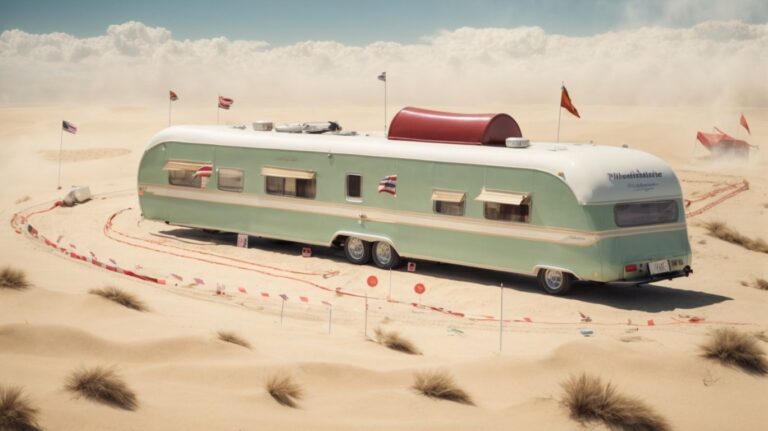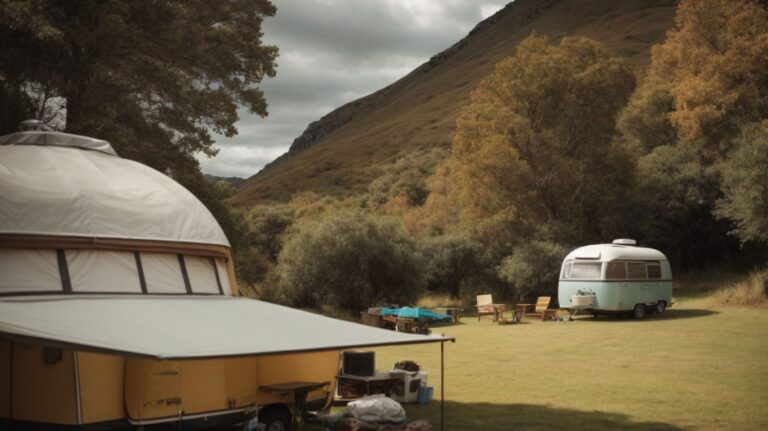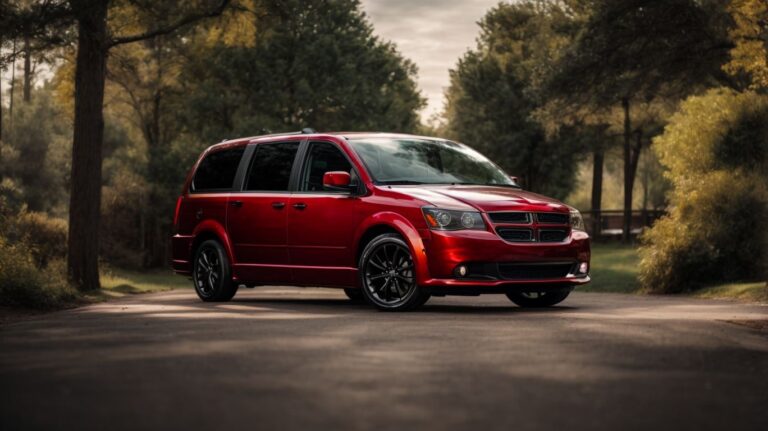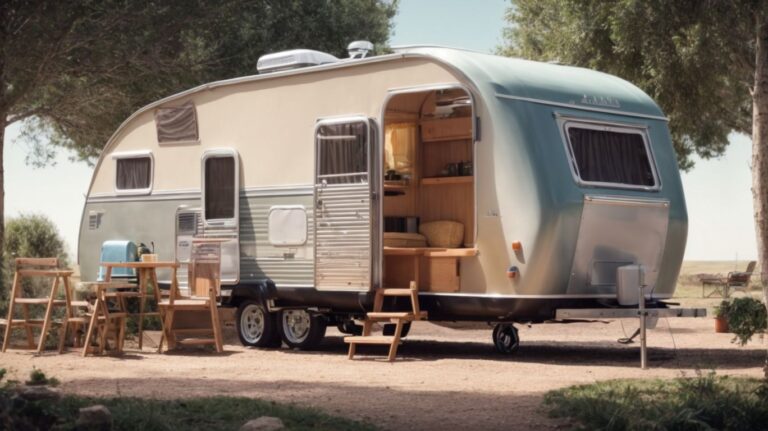Traveling in a Caravan While Being Towed: Safety Precautions and Legal Considerations
Are you considering hitting the road in a caravan but unsure of the ins and outs?
This article covers understanding how caravans work, the various types available, legal requirements for towing, safety precautions, and the benefits of traveling in a caravan.
Whether you’re a seasoned traveler or a novice adventurer, this guide will ensure you’re well-equipped with the knowledge needed for a safe and enjoyable journey on the open road.
Key Takeaways:
What Is a Caravan and How Does it Work?
A caravan is a towed vehicle used for recreational purposes, typically attached to a towing vehicle. It serves as a mobile home away from home, offering travelers the convenience of bringing their accommodations with them.
These vehicles are equipped with living spaces, sleeping quarters, cooking facilities, and sometimes even bathrooms, making them self-sufficient for extended trips. The towing mechanism involves securely attaching the caravan to the towing vehicle using a hitch. When towing a caravan, one must consider the weight distribution to ensure stability and safe handling on the road.
Furthermore, caravans are equipped with braking systems to assist in stopping safely and smoothly. Proper setup and maintenance of these systems are crucial for ensuring the overall safety of the journey. Many caravans are now equipped with sophisticated braking technologies, such as electronic stability control, to enhance safety while on the move.
What Are the Different Types of Caravans?
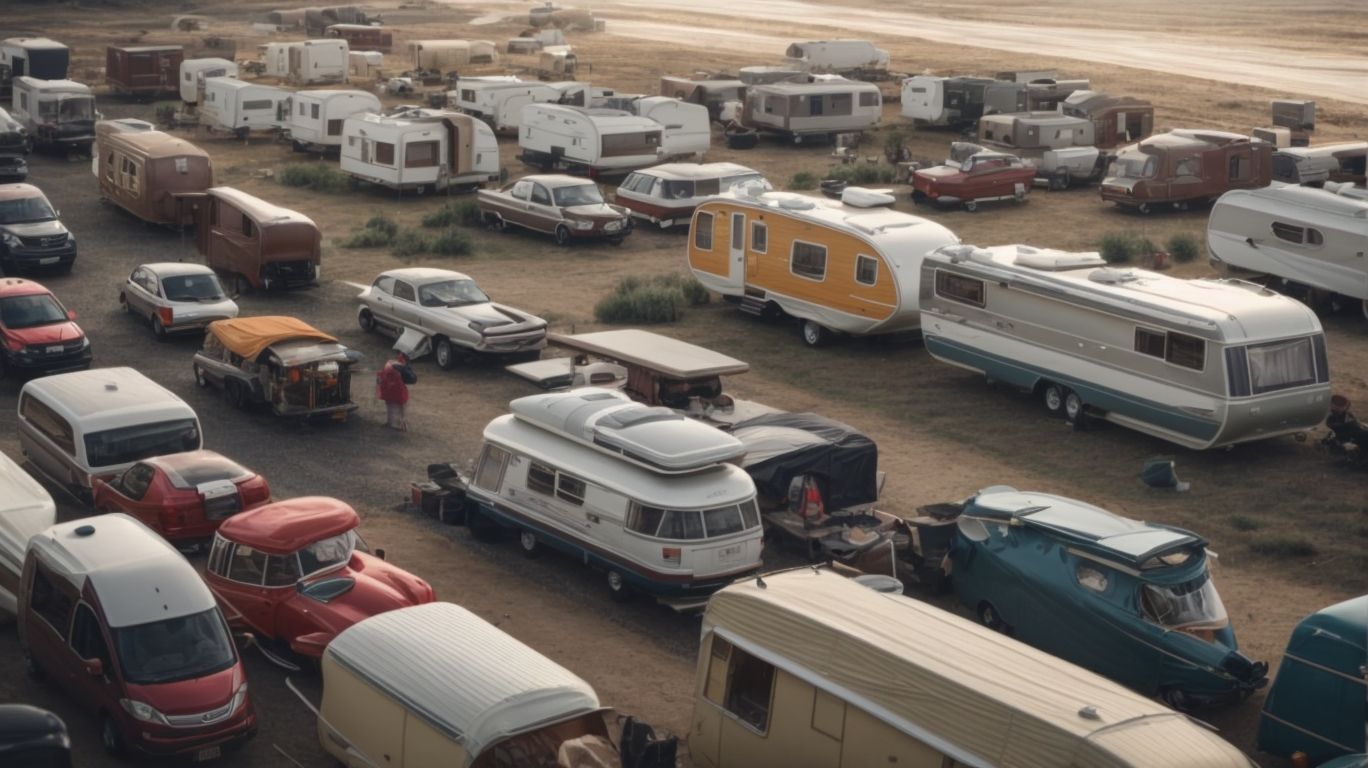
Motion Activated RV Step Lights, 10 LED Battery Operated Motorhome Motion Sensor led Light Strip, Magnetic Night Light Bar for Motorhome Travel,Travel Trailers, Camper (2 Pack)
- 【Infrared Induction Motion Detection】Motion sensor light on the PIR sensor can detect human movement, 10 feet once your approach is detected, the rv step lights will automatically turn on in the dark, in the absence of detected motion or other light sources, 18 seconds after the automatic shutdown, a large degree of power savings and improved durability.
Camco TST MAX RV Toilet Treatment Drop-INs - Control Unwanted Odors & Break Down Waste and Tissue - Safe Septic Tank Treatment - Orange Scent, 30-Pack (41183)
- Toilet Deodorizer With Reactive Odor-Eliminating Technology: Experience a powerful RV odor eliminator that stops RV black tank odors for up to 7 days. Just (1) toilet drop in treats camper toilets with up to a 40-gallon tank.
THANSTAR Collapsible Dish Drying Rack Portable Dinnerware Drainer Organizer for Kitchen RV Campers Travel Trailer Space Saving Kitchen Storage Tray
- 【Food Grade Material】Made from eco-friendly PP+TPR material that is BPA Free and Food-Grade. The flexible material allows the dish strainers for kitchen counter to collapse flat for easy space-saving and storage, making the most of your kitchen countertop.
Camco RhinoFLEX 20-Ft RV Sewer Hose Kit - Features Clear Elbow Fitting w/Removable 4-in-1 Adapter - Connects to 3” Slip or 3”/3.5”/4” NPT Threaded Sewer Connection (39742)
- Superior RV Tank Dumping: Streamline RV holding tank dumping with Camco’s RhinoFLEX 20' Camper Sewer Hose Kit. Built tough & flexible, this all-inclusive RV septic hose system provides simple & effective tank dumping on your camping adventures.
Camco Tastepure RV Water Filter - New & Advanced RV Inline Water Filter with Flexible Hose Protector - GAC & KDF Water Filter - Made in USA - Camping Essentials for Fresh Drinking Water (40043)
- Advanced 6-Step Filtration Technology: Experience the extraordinary power of Hex-Flow Technology & its remarkable 6-step filtration process. Every layer works together to provide you with water that is exceptionally clean.





Credits: Motorcaravanning.Com – Roy Scott
Caravans come in various types to cater to different traveler preferences and needs. The key types include conventional caravans, pop-top caravans, camper trailers, and fifth wheelers, each offering unique features and benefits.
Conventional caravans, also known as travel trailers, are the most common type and are usually designed as a single unit with a solid roof and walls. They offer ample living space and amenities, including kitchenettes, bathrooms, and sleeping areas, making them ideal for extended trips or full-time living.
Pop-top caravans feature a retractable roof that can be raised for extra headroom when stationary and lowered for easier towing. These are lighter in weight compared to conventional caravans, making them easier to tow for vehicles with lower towing capacities.
Camper trailers are compact, lightweight trailers that can be towed by a variety of vehicles, including SUVs and even some sedans. They are versatile and often include fold-out beds, kitchen facilities, and storage options, perfect for off-road adventures or weekend getaways.
Fifth wheelers are designed to attach to a specialized hitch in the bed of a pickup truck, providing stability and easier maneuverability. They offer spacious interiors with multiple levels and can include luxurious amenities like slide-out sections, separate living areas, and large kitchens, making them suitable for long trips or as a second home.
Conventional Caravans
Conventional caravans are the traditional choice for many travelers, offering a spacious interior, comfortable sleeping arrangements, and various amenities to enhance the travel experience.
These caravans typically feature a well-thought-out layout that includes a kitchenette equipped with a stove, refrigerator, and storage cabinets for all your cooking needs. The living area often comprises a dining table, seating arrangements, and entertainment systems to keep you entertained on the road. The sleeping quarters may include bunk beds, a cozy double bed, or convertible seating areas that can cater to individual preferences.
Pop-top Caravans
Pop-top caravans are known for their compact design and expandable roof, providing additional headroom while towing and a more streamlined profile when stationary.
One of the unique characteristics of pop-top caravans is their clever use of space-saving features. The ability to raise the roof not only enhances the interior living space but also ensures a more comfortable atmosphere inside. Setting up a pop-top caravan is relatively easy and straightforward, with some models featuring automated systems for effortless deployment. Travelers can enjoy the benefits of having a cozy living area during stops, while the lowered height enhances aerodynamics for a stable towing experience. The setup process typically involves securing the pop-top roof for added stability, enabling a secure and efficient travel experience.





Camper Trailers
Camper trailers are versatile and lightweight options for adventurers seeking off-road travel experiences. They offer a compact living space with essential amenities for camping enthusiasts.
One of the key advantages of camper trailers is their exceptional towing capacity, allowing them to be easily pulled by most standard vehicles. Their sturdy construction and off-road design features, such as reinforced chassis and reliable suspension systems, make them well-suited for tackling various road conditions encountered during outdoor adventures.
Plus their rugged build, camper trailers are equipped with specialized tyre maintenance features, such as durable all-terrain tires and easy-to-access spare tire mounts, ensuring a safe and hassle-free journey through challenging terrains.
Fifth Wheelers
Fifth wheelers are characterized by a unique hitch design that enhances stability and maneuverability while towing. These spacious caravans often feature multiple levels and deluxe amenities.
-
The hitching mechanism of fifth wheelers involves a specialized hitch that is mounted in the bed of a pickup truck, providing a point of connection that improves towing control. This design results in a lower hitch weight compared to traditional trailers, making it more stable and easier to maneuver.
-
The interior layout of fifth wheelers is optimized for comfort and efficiency, with features such as slide-out sections that expand living spaces. The braking system on these RVs is designed to handle the increased weight effectively, ensuring safe stops even in challenging road conditions.
-
One of the key benefits of fifth wheelers is their weight distribution, which is typically more balanced compared to other types of trailers. This equates to a smoother ride for occupants and reduces the strain on the towing vehicle.
What Are the Legal Requirements for Towing a Caravan?
Towing a caravan entails adherence to specific legal requirements to ensure safety on the road. These include possessing the appropriate driver’s license, complying with weight and size restrictions, and ensuring proper registration and insurance for the caravan.
One essential aspect of towing a caravan is understanding the weight limits imposed by authorities. Caravans are subject to weight regulations to prevent accidents and ensure road safety. It is crucial to have a towing vehicle that can safely handle the weight of the caravan. Equipping the vehicle with a proper brake controller is mandatory in many regions to enhance braking efficiency. Road conditions also play a significant role in towing safety, as factors like inclines, curves, and weather conditions can affect the stability of the caravan.
Driver’s License
Obtaining the appropriate driver’s license is a fundamental legal requirement for individuals planning to tow a caravan. The license must permit the operation of vehicles with trailers or caravans based on their weight and category.





In terms of towing, it’s crucial to understand the specific regulations that govern this activity. Licenses are categorized according to the weight of the vehicle and the trailer it can tow. For instance, a Category B license allows you to tow a small caravan, usually up to 750kg, whereas a Category B+E license is required for towing heavier caravans that exceed this weight limit. Certain endorsements might be necessary for towing trailers above a certain weight, ensuring that you are compliant with the law and competent in handling larger loads.
Weight and Size Restrictions
Weight and size restrictions play a crucial role in ensuring the safe operation of a towing vehicle with a caravan. These limitations are set to maintain stability, control, and road safety during travel.
Exceeding the designated weight limits not only poses a danger to everyone on the road but can also result in hefty fines or even legal repercussions.
Proper weight distribution within the caravan is essential to prevent swaying and improve handling.
Having a well-functioning braking system is vital for effectively stopping both the towing vehicle and the caravan.
Using towing mirrors is another crucial aspect to enhance visibility, ensuring you have a clear view of the surroundings, especially when making maneuvers or changing lanes.
Registration and Insurance
Registering and insuring a caravan are essential legal requirements to protect both the vehicle owner and other road users.
In terms of registering your caravan, the process typically involves submitting the necessary documents, such as proof of ownership, identification, and any required inspection reports, to the relevant motor vehicle department or authority. The registration certificate, also known as the logbook, will be issued once all requirements are met.
On the other hand, obtaining insurance coverage for your caravan is crucial to safeguard against potential liabilities and financial risks. This includes insuring against theft, damage, and third-party claims. Regular maintenance, safety checks, and ensuring the caravan’s roadworthiness are integral aspects to uphold safety standards on the road.
What Are the Safety Precautions for Towing a Caravan?
Ensuring safety while towing a caravan involves adhering to specific precautions to mitigate risks and enhance overall travel security. Proper loading and weight distribution, regular maintenance, and adherence to safety checks are paramount for a safe towing experience.





In terms of loading a caravan, it is essential to distribute weight evenly within the caravan to ensure stability on the road. Brake controllers play a crucial role in maintaining control and reducing sway while towing, so they must be in good working condition. Regularly inspecting and maintaining the caravan’s tyres is vital for safe travels, as worn-out tyres can lead to accidents. By following these guidelines and integrating proper safety measures, you can enjoy a secure and stress-free towing experience.
Proper Loading and Weight Distribution
Proper loading and weight distribution are critical aspects of caravan towing to maintain stability, control, and road safety. Distributing weight evenly and securing cargo effectively can prevent issues such as swaying and loss of control during travel.
When towing a caravan, the distribution of weight plays a crucial role in how the vehicle behaves on the road. Uneven weight distribution can lead to overloading one side, potentially affecting the brake systems, steering response, and overall towing setup. Improper weight balance can increase the risk of trailer sway, especially when encountering different road conditions such as sharp turns, sudden stops, or uneven surfaces. This can compromise the vehicle handling and stability, posing a significant threat to the safety of both the driver and other road users.
Regular Maintenance and Safety Checks
Regular maintenance and safety checks are critical practices for ensuring the optimal performance and safety of a towing caravan. Conducting routine inspections, checking brakes, and verifying essential components can prevent potential issues and accidents on the road.
One crucial aspect of caravan maintenance is brake inspections. It is vital to regularly examine the brake controllers, ensure they are functioning correctly, and adjust them as needed. Keeping an eye on the tyre pressure, tread depth, and overall condition is essential for safe towing. Exceeding weight limits can strain the vehicle’s braking system, so always adhere to the recommended weight limits for your caravan.
Before every trip, it is recommended to conduct a thorough inspection of the braking system, including the brake pads, rotors, and hydraulic lines. Ensuring that the braking system is in optimal condition can significantly reduce the risk of accidents and improve overall driving safety. Remember, a well-maintained caravan not only performs better but also enhances the safety of everyone on the road.
Safe Driving Techniques
Adopting safe driving techniques is paramount for a smooth and secure towing experience with a caravan.
One crucial aspect of towing a caravan safely involves stability control. Ensuring that the weight distribution of the caravan is properly balanced can help prevent swaying and fishtailing. Utilizing proper brake control techniques, such as gradually applying brakes and avoiding sudden stops, is essential to avoid skidding and maintaining control. Towing mirrors are also critical tools for monitoring blind spots and ensuring clear visibility. Implementing these best practices alongside maintaining a consistent speed, using indicators for lane changes, and staying vigilant of other vehicles on the road are key to a safe towing experience.
What Are the Safety Considerations for Traveling in a Caravan?
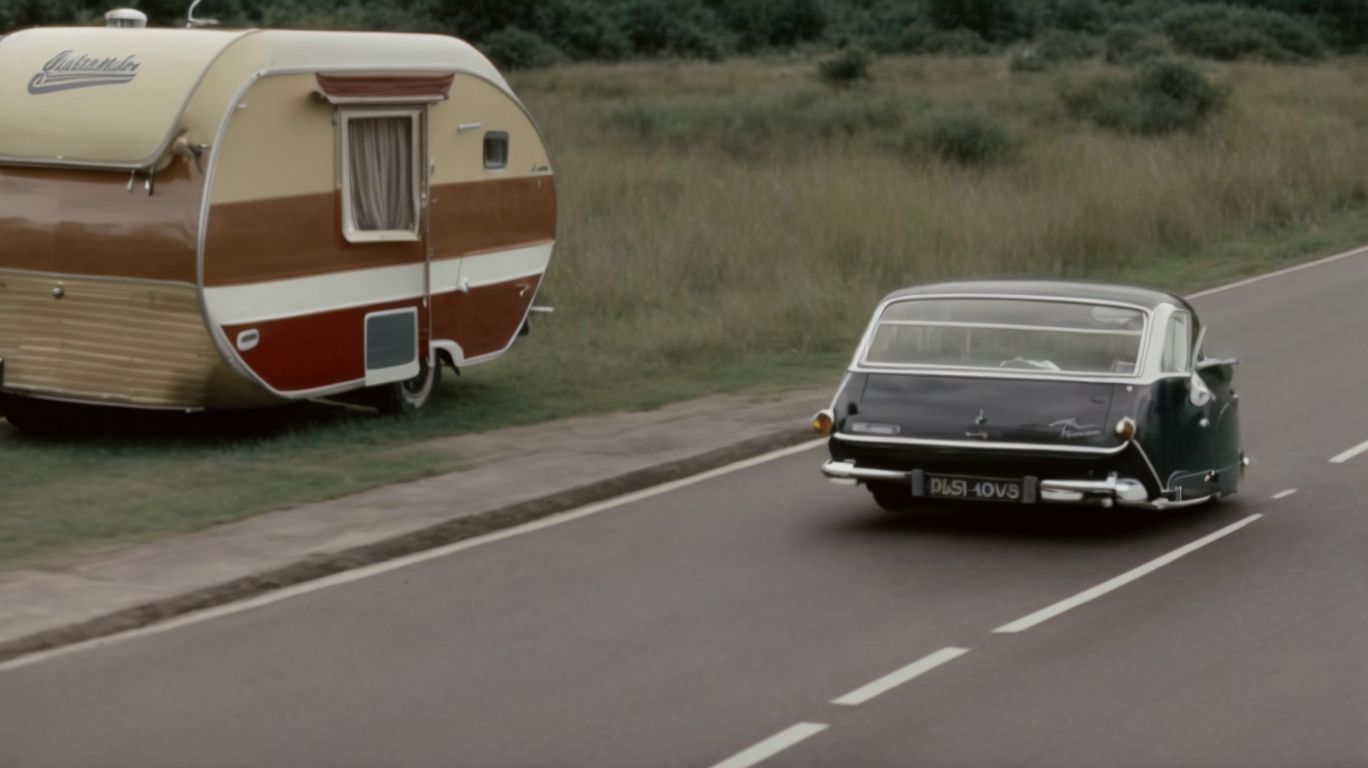





Credits: Motorcaravanning.Com – Larry Anderson
Traveling in a caravan requires attention to various safety considerations to ensure the well-being of occupants and mitigate potential risks. Implementing seatbelt usage, fire safety protocols, carbon monoxide poisoning prevention, and emergency preparedness measures are essential for a safe travel experience.
One of the fundamental safety checks before embarking on a caravan journey involves ensuring that all seatbelts are properly fastened for every passenger. The importance of seatbelt laws cannot be overstated when it comes to protecting individuals in the event of sudden stops or accidents.
Having fire prevention gear such as fire extinguishers and smoke alarms installed in the caravan can significantly reduce the risk of fire-related incidents. Being proactive in emergency response by having a well-equipped first aid kit and knowing basic first aid procedures can be lifesaving in critical situations.
Seatbelt Usage
Strict adherence to seatbelt usage is crucial for the safety of all occupants while traveling in a caravan.
In case of a sudden stop or collision, seatbelts play a critical role in preventing serious injuries by restraining passengers and minimizing the risk of ejection from the vehicle. Seatbelt compliance is not just a safety measure but also a legal requirement in many jurisdictions, with hefty fines for non-compliance. It is essential for all passengers, including those in tow vehicles, to wear their seatbelts properly fitted and adjusted, irrespective of the duration of the journey.
Fire Safety
Fire safety measures are essential for preventing and managing potential fire hazards while traveling in a caravan. Equipping the caravan with fire extinguishers, smoke alarms, and practicing evacuation drills can enhance preparedness and minimize fire-related risks.
Early detection is crucial in fire safety, with smoke alarms serving as the first line of defense to alert occupants in the event of a fire outbreak. Ensuring that these alarms are regularly tested and functioning properly is paramount.
Having a well-thought-out emergency response plan can make a significant difference in critical situations. This plan should outline steps for evacuation, identify safe meeting points, and designate roles for each member in case of a fire emergency.
In terms of fire extinguishers, their placement within the caravan is key. They should be easily accessible in areas prone to fire risks, such as the kitchen or electrical panel. Regular checks of the extinguishers’ pressure levels and expiry dates are also essential to ensure their effectiveness.





Carbon Monoxide Poisoning Prevention
Preventing carbon monoxide poisoning is paramount when traveling in a caravan to safeguard occupants against this silent but deadly threat.
Carbon monoxide poisoning can occur when fuel-burning appliances malfunction in an enclosed space, such as a caravan, leading to a buildup of the odorless and colorless gas.
To combat this danger, emergency preparedness is key. Implementing routine checks on gas appliances and flues, as well as educating all occupants on the signs of poisoning, are essential safety precautions. Investing in quality carbon monoxide detectors that meet recognized standards is critical for early detection and timely evacuation in case of any gas leak or emergency.
Emergency Preparedness
Effective emergency preparedness is essential for responding to unexpected situations or hazards while traveling in a caravan.
Having a well-thought-out emergency plan in place is crucial for anticipating and addressing potential risks that may arise during caravan journeys. This includes identifying safe locations for shelter, establishing communication protocols, and mapping out evacuation routes.
Assembling a comprehensive first aid kit, complete with basic medical supplies, prescription medications, and emergency contact information, is a fundamental component of preparedness. Regularly reviewing and updating this kit is vital to ensure its relevance and effectiveness in times of need.
What Are the Benefits of Traveling in a Caravan?
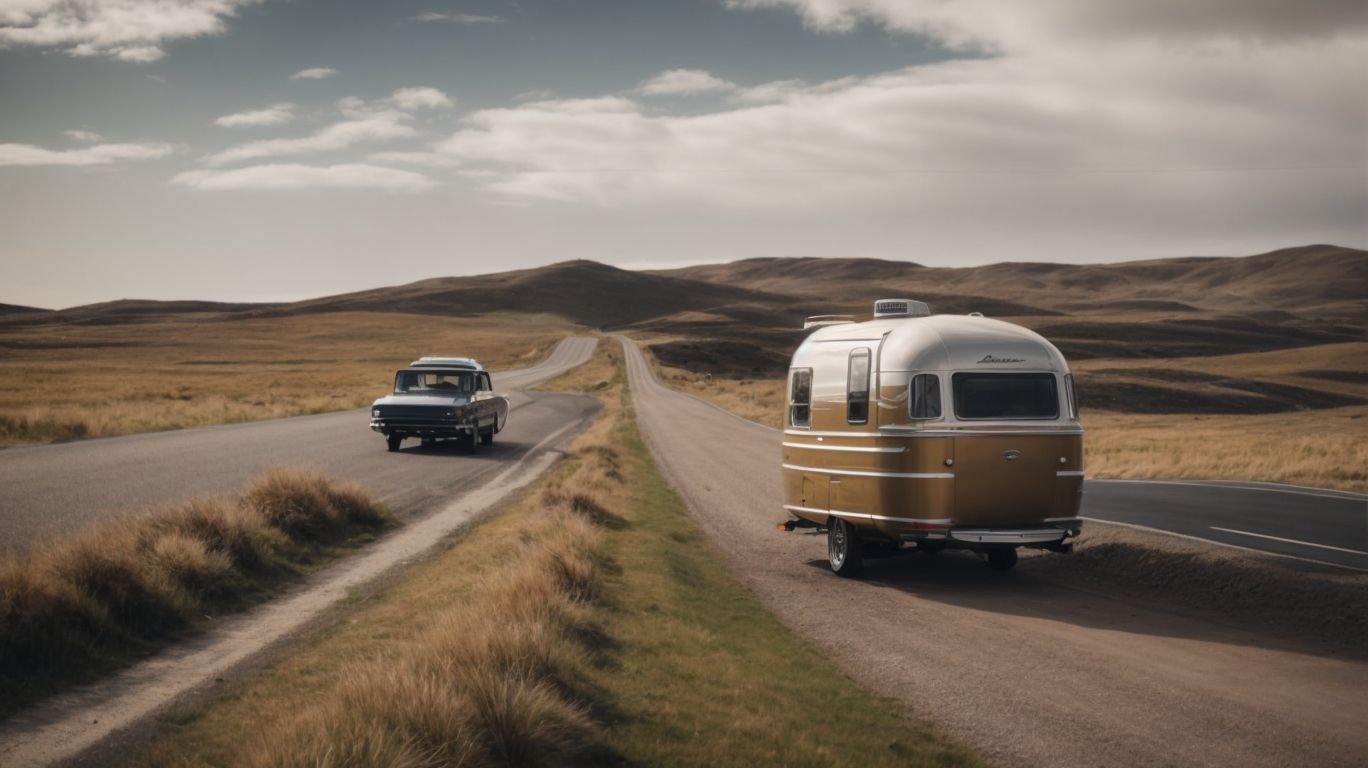
Credits: Motorcaravanning.Com – Jonathan Mitchell
Traveling in a caravan offers numerous advantages, including cost-effective accommodation, flexibility in travel itineraries, and a closer connection to nature. These benefits enhance the overall travel experience for caravan enthusiasts.





One of the key benefits of caravan travel lies in the cost-saving opportunities it presents. Instead of splurging on expensive hotels or accommodations, caravan enthusiasts can enjoy budget-friendly stays at campsites and RV parks, translating to significant savings over time. The flexibility offered by traveling in a caravan allows enthusiasts to change travel plans on the go, without the hassle of fixed bookings. This adaptability adds a sense of spontaneity and freedom to the journey.
Cost-effective Traveling
Caravan travel is renowned for its cost-effective nature, offering travelers an affordable accommodation solution coupled with the freedom to explore various destinations without the constraints of traditional lodging expenses.
One significant cost-saving aspect of traveling in a caravan is the reduced need for expensive hotel stays, as caravans provide a comfortable and convenient living space on wheels. With no hotel room charges and the flexibility to cook meals in the caravan, travelers can significantly cut down on daily expenses. Caravan travel allows individuals to customize their trip according to their budget, whether opting for basic campgrounds or more luxurious RV parks.
Caravans are designed with cost-efficiency in mind, offering features such as efficient energy usage to lower overall fuel costs. Many modern caravans are built to be lightweight, aiding in fuel efficiency and reducing the impact on the overall travel budget. By carefully managing weight limits and keeping up with regular maintenance, travelers can ensure their caravan remains a budget-friendly option for extended road trips.
Flexibility and Convenience
The flexibility and convenience offered by caravan travel are unparalleled, allowing travelers to tailor their itineraries, stay at various locations, and enjoy the comforts of home on the go. This versatility enhances the overall travel experience.
One key aspect contributing to the convenience of caravan travel is the ease of setup. With advancements in design and technology, modern caravans feature user-friendly systems that simplify the process of preparing your temporary home on wheels. The freedom to choose personalized travel schedules means that adventurers can explore destinations at their own pace, without being bound by strict itineraries.
Caravan travel enables individuals to easily adapt to different environments. The ability to adjust weight distribution, utilize brake controllers effectively, and optimize the towing setup ensures a smooth journey across various terrains, from winding coastal roads to rugged mountain paths. This adaptability ensures a comfortable and secure travel experience for all.
Closer to Nature Experience
Traveling in a caravan provides a unique opportunity to immerse oneself in nature, explore scenic landscapes, and embark on outdoor adventures. The close connection to nature enhances the travel experience, offering unforgettable moments and memorable encounters with the natural world.
Embarking on a caravan journey allows individuals to disconnect from the hustle and bustle of urban life and relish the tranquility of untouched environments. From winding mountain roads to coastal drives along breathtaking cliffs, caravan travel opens up a world of diverse terrains waiting to be explored.
Engaging in outdoor activities such as hiking, biking, or simply enjoying a picnic amidst lush greenery becomes a daily occurrence when caravaning. The freedom to park amidst scenic vistas and wake up to spectacular sunrises fosters a sense of adventure and rejuvenation unparalleled by traditional travel modes.





Frequently Asked Questions
What are some basic safety precautions to take when traveling in a caravan while being towed?
It is important to properly balance the weight of your caravan and ensure it is securely attached to your tow vehicle. Checking tire pressure, using safety chains, and properly connecting electrical systems are also important safety precautions.
Are there any specific legal considerations for traveling in a caravan while being towed?
Yes, it is important to familiarize yourself with the laws and regulations of the areas you will be traveling through. This includes knowing weight restrictions, speed limits, and any special permits or licenses that may be required.
What should I do if I experience any issues or malfunctions while traveling in a caravan?
If you experience any issues or malfunctions with your caravan while traveling, it is important to safely pull over and assess the situation. If necessary, seek professional assistance to address the problem before continuing your journey.
How can I ensure the safety of my passengers while traveling in a caravan being towed?
It is important to make sure all passengers are properly seated and wearing seatbelts while the caravan is in motion. Avoid sudden movements or sharp turns that could cause the caravan to sway and potentially cause harm to passengers.
Are there any specific safety precautions to take when traveling in a caravan with children?
Yes, children should always be properly restrained in appropriate car seats or seatbelts while the caravan is in motion. It is also important to keep potentially hazardous items, such as cooking appliances, safely secured while traveling.
What should I do in case of an emergency while traveling in a caravan?
It is important to have a plan in place for emergencies while traveling in a caravan. This may include having a first aid kit and emergency contact information easily accessible, as well as knowing the location of nearby emergency services.
